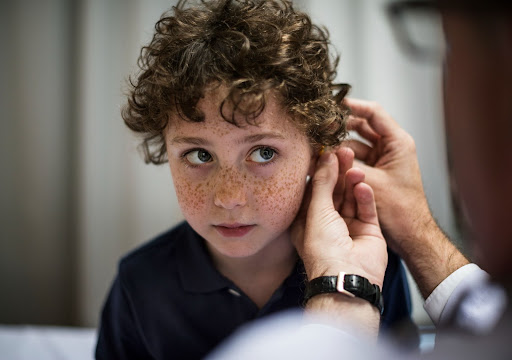When a child presents symptoms of an illness or disorder, it can be more difficult to properly diagnose them than it would be for an adult. Unfortunately, a misdiagnosis for a child could lead to years of unnecessary, unsuccessful treatments while their actual condition goes untreated.
Importance of accurate diagnoses for children
The consequences of misdiagnosing a child may be greater than those of misdiagnosing an adult. Children may suffer cognitive delays due to misdiagnosis or develop neurological issues that they otherwise wouldn’t have.
In some cases, early intervention would have prevented complications. In other cases, the child suffers through treatments, doctor appointments, and the side effects of medications for a condition they didn’t have. If your child has suffered as a result of a misdiagnosed medical condition, an experienced attorney with Lytal, Reiter, Smith, Ivey & Fronrath can help you explore your legal options.
Top misdiagnosed disorders in children
Some of the most commonly misdiagnosed mental and behavioral disorders in children are:
- Attention deficit disorder (ADD)/Attention deficit-hyperactivity disorder (ADHD)
- Mood disorders like anxiety, depression, and bipolar disorder
- Oppositional defiant disorder (ODD) or intermittent explosive disorder (IED)
- Autism or restricted speech
Although these behavioral disorders are common in children and adults, the root cause of the behavior may not be one of these disorders. For example, food sensitivities, poor sleep, or a hypoglycemic diet could cause a child to present symptoms that mimic ADD/ADHD.
Factors contributing to misdiagnosis in children
Sometimes, a child’s doctor might find a diagnosis that fits the child’s behavioral profile, but they might fail to consider if a physiological component may be the true cause of the symptoms. Once the family and treatment team find a solution that seems to work, they often stop looking for other causes of the child’s actions.
There are some factors that can make a medical misdiagnosis in children more likely.
Limited pediatric experience among healthcare providers
Many pediatricians are generalists, so although they may be accurate in diagnosing common childhood physical illnesses, they might have limited experience identifying or treating mental illnesses or special disorders in children.
Getting a diagnosis from a child’s primary care pediatrician could be difficult, especially since many symptoms of behavioral disorders may be attributed to “just a stage of development.” In order to increase the chances of proper diagnoses, parents might need to consult a team of professionals.

Difficulty communicating symptoms for young children
Younger children may have difficulty describing their feelings. Basic emotions like anger, sadness, or excitement, might be the only way a child can describe their feelings or their frustration.
Without the ability to identify what’s wrong and the vocabulary to describe it, diagnosing from reported symptoms becomes a guessing game. Sometimes the child might not realize that something is wrong, making diagnosis even harder.
Parents or primary caretakers are often tasked with keeping a log of the child’s behavior, noting any particular triggers, situations, or surroundings, and describing conditions that cause a tantrum or outburst. A physician must then diagnose the child based on secondhand self-reporting of the child’s symptoms.
Overreliance on standardized tests and assessments
To reduce the confusion or potential implicit bias unreliable self-reporting can cause, the medical mental health community has developed several assessments and standardized tests to diagnose mental and behavioral disorders in children.
While these tests can be a valuable tool, they can also fail to consider other factors that might be causing the symptoms. Standardized tests also fail to consider physical reasons for symptoms that mimic behavioral disorders, like a head injury, thyroid disorder, or a learning disability.
Bias and cultural differences
Although the stigma of mental illness has lessened, there are still many cultures and communities where children may be treated negatively after a behavioral health diagnosis.
Parents may not wish their child to be perceived differently after a mental disorder diagnosis and so they may not be as willing to present vital information to the doctor about the child’s behavior or concerns. If a pediatrician isn’t aware of all details, they are more likely to misdiagnose a condition.
Impact of misdiagnosis on children and their families
Early intervention can help children learn coping skills appropriate for their age and needs. Redirecting children while their neural pathways are forming can make it easier for them to self-manage their condition.
Some disorders are treated with a combination of behavior therapy and medication. However, for children who are misdiagnosed and prescribed medication they don’t need, the side effects could impact their physical growth and cognitive development.
Steps to prevent misdiagnosis in children
There are several proactive steps parents can take to prevent misdiagnosis in their child:
- Get a second opinion from a specialist who treats children
- Give your treatment team as much information as possible, including symptoms and a complete family medical history
- Ask if your child’s symptoms could be attributed to a health condition, not a mental disorder
Has your child suffered because of a medical misdiagnosis?
If you suspect your child has been misdiagnosed, you have legal options, including filing a medical malpractice claim. To learn how the Florida medical malpractice lawyers with Lytal, Reiter, Smith, Ivey & Fronrath today can help, call (561) 655-1990 for a complimentary case consultation.




